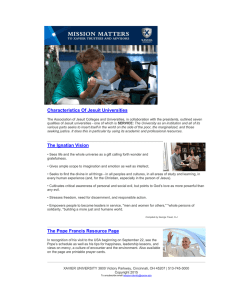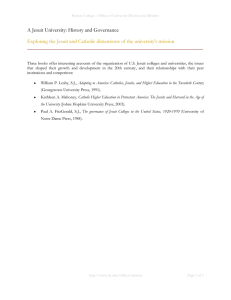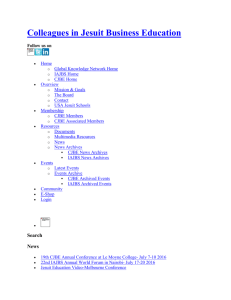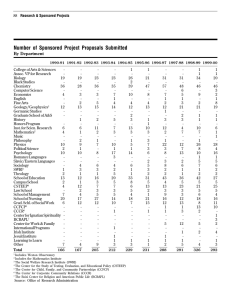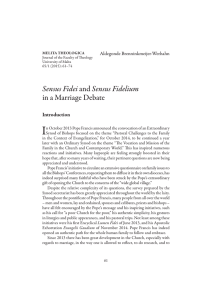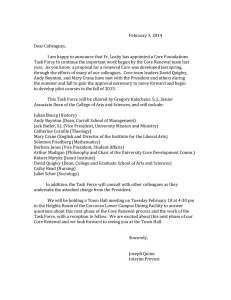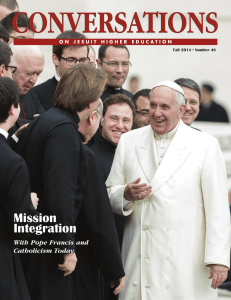THE JESUIT POPE FRANCIS
advertisement
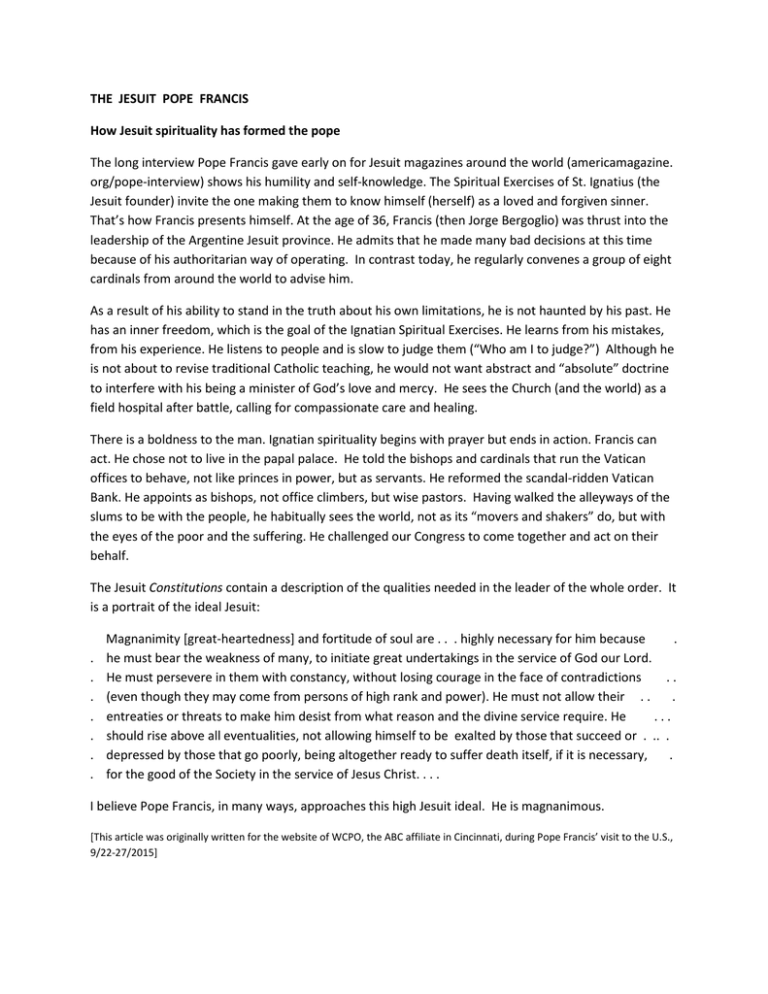
THE JESUIT POPE FRANCIS How Jesuit spirituality has formed the pope The long interview Pope Francis gave early on for Jesuit magazines around the world (americamagazine. org/pope-interview) shows his humility and self-knowledge. The Spiritual Exercises of St. Ignatius (the Jesuit founder) invite the one making them to know himself (herself) as a loved and forgiven sinner. That’s how Francis presents himself. At the age of 36, Francis (then Jorge Bergoglio) was thrust into the leadership of the Argentine Jesuit province. He admits that he made many bad decisions at this time because of his authoritarian way of operating. In contrast today, he regularly convenes a group of eight cardinals from around the world to advise him. As a result of his ability to stand in the truth about his own limitations, he is not haunted by his past. He has an inner freedom, which is the goal of the Ignatian Spiritual Exercises. He learns from his mistakes, from his experience. He listens to people and is slow to judge them (“Who am I to judge?”) Although he is not about to revise traditional Catholic teaching, he would not want abstract and “absolute” doctrine to interfere with his being a minister of God’s love and mercy. He sees the Church (and the world) as a field hospital after battle, calling for compassionate care and healing. There is a boldness to the man. Ignatian spirituality begins with prayer but ends in action. Francis can act. He chose not to live in the papal palace. He told the bishops and cardinals that run the Vatican offices to behave, not like princes in power, but as servants. He reformed the scandal-ridden Vatican Bank. He appoints as bishops, not office climbers, but wise pastors. Having walked the alleyways of the slums to be with the people, he habitually sees the world, not as its “movers and shakers” do, but with the eyes of the poor and the suffering. He challenged our Congress to come together and act on their behalf. The Jesuit Constitutions contain a description of the qualities needed in the leader of the whole order. It is a portrait of the ideal Jesuit: . . . . . . . Magnanimity [great-heartedness] and fortitude of soul are . . . highly necessary for him because . he must bear the weakness of many, to initiate great undertakings in the service of God our Lord. He must persevere in them with constancy, without losing courage in the face of contradictions .. (even though they may come from persons of high rank and power). He must not allow their . . . entreaties or threats to make him desist from what reason and the divine service require. He ... should rise above all eventualities, not allowing himself to be exalted by those that succeed or . .. . depressed by those that go poorly, being altogether ready to suffer death itself, if it is necessary, . for the good of the Society in the service of Jesus Christ. . . . I believe Pope Francis, in many ways, approaches this high Jesuit ideal. He is magnanimous. [This article was originally written for the website of WCPO, the ABC affiliate in Cincinnati, during Pope Francis’ visit to the U.S., 9/22-27/2015]
